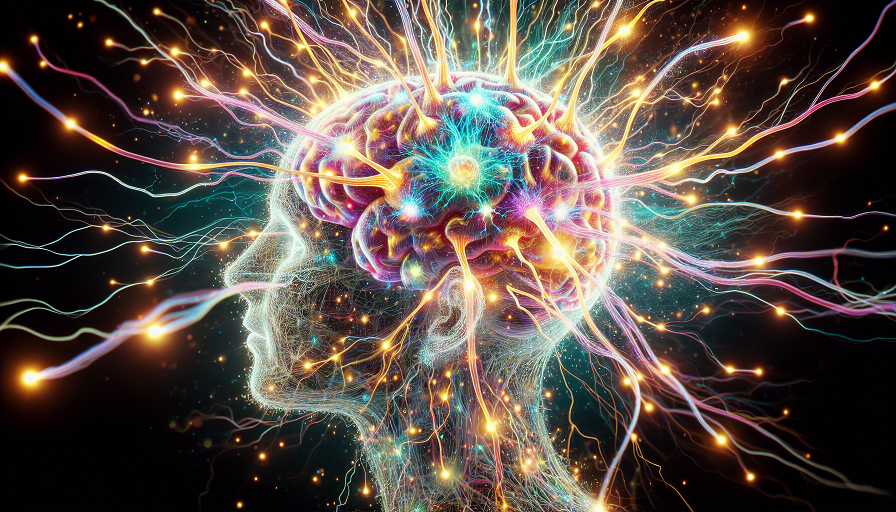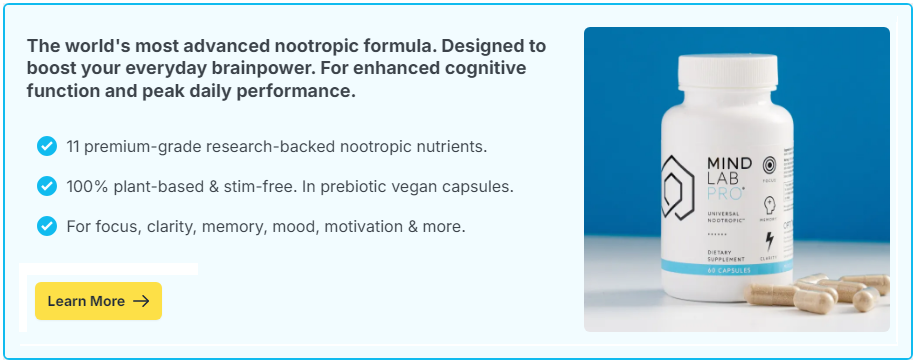
Panic attacks can be terrifying and debilitating, causing sudden, intense episodes of fear, heart palpitations, shortness of breath, dizziness, and a sense of impending doom. While therapy and medication are common treatment options, many individuals seek natural alternatives to help manage anxiety and prevent panic attacks.
Magnesium L-Threonate and Inositol are two popular supplements known for their potential to ease anxiety and support mental health. But which one is more effective for preventing and reducing panic attacks?
Contents
What Is Magnesium L-Threonate?
Magnesium L-Threonate is a unique form of magnesium specifically designed to cross the blood-brain barrier. Unlike other forms of magnesium, it is highly bioavailable and has been shown to increase magnesium levels in the brain, which is crucial for reducing stress, improving mood, and enhancing cognitive function.
How Magnesium L-Threonate Helps Reduce Panic Attacks
Magnesium plays a vital role in brain function and mood regulation. Magnesium L-Threonate helps with anxiety and panic attacks through several mechanisms:
- Regulates the Nervous System: Magnesium calms the central nervous system by inhibiting excessive neuronal firing and reducing overactive brain activity that contributes to panic attacks.
- Increases GABA Activity: GABA (gamma-aminobutyric acid) is the brain’s primary inhibitory neurotransmitter. Higher GABA levels promote relaxation and prevent panic episodes.
- Reduces Cortisol and Stress Response: High cortisol levels contribute to anxiety. Magnesium L-Threonate helps regulate the stress response, lowering cortisol levels.
- Supports Neuroplasticity: Magnesium is essential for synaptic plasticity, allowing the brain to adapt and respond better to stress and anxiety triggers.
Scientific Research on Magnesium L-Threonate for Anxiety
Studies support Magnesium L-Threonate’s ability to improve mood and reduce anxiety:
- A 2010 study published in Neuron found that Magnesium L-Threonate increased synaptic plasticity and improved cognitive function, which can help reduce stress-related anxiety.
- A 2017 study showed that magnesium deficiency is linked to higher anxiety and panic disorder symptoms, suggesting that increasing magnesium intake can help regulate emotional responses.
- A 2020 clinical trial found that Magnesium L-Threonate supplementation reduced stress and improved sleep quality, which is essential for managing anxiety and preventing panic attacks.
Benefits of Magnesium L-Threonate for Panic Attacks
Magnesium L-Threonate offers multiple benefits for individuals struggling with panic attacks:
- Calms the nervous system and prevents overactive brain activity
- Supports GABA production for relaxation
- Reduces stress hormones and improves mood stability
- Enhances brain function and neuroplasticity
- May improve sleep, which helps prevent nighttime panic attacks
Potential Side Effects of Magnesium L-Threonate
Magnesium L-Threonate is generally well-tolerated, but some individuals may experience:
- Mild digestive issues (loose stools, nausea)
- Drowsiness if taken in high doses
- Possible interactions with blood pressure or anxiety medications
What Is Inositol?
Inositol is a naturally occurring compound often classified as a B-vitamin, though technically it is a sugar alcohol. It plays a key role in neurotransmitter signaling and is particularly effective for anxiety, panic disorder, and obsessive-compulsive disorder (OCD).
How Inositol Helps Reduce Panic Attacks
Inositol influences anxiety and panic attacks through the following mechanisms:
- Increases Serotonin Activity: Serotonin is a critical neurotransmitter for mood regulation. Inositol enhances serotonin receptor sensitivity, leading to a greater sense of calm.
- Regulates Dopamine Levels: Inositol supports dopamine function, improving motivation and emotional stability.
- Balances the Stress Response: It helps regulate the hypothalamic-pituitary-adrenal (HPA) axis, reducing the overactive stress response that contributes to panic attacks.
- Improves Communication Between Brain Cells: Inositol is involved in cellular signaling, allowing for better regulation of neural pathways that affect mood and anxiety.
Scientific Research on Inositol for Anxiety and Panic Attacks
Research has shown that Inositol is highly effective for anxiety disorders:
- A 1995 study in The American Journal of Psychiatry found that high doses of Inositol (18g/day) significantly reduced panic attack frequency, performing as well as some prescription medications.
- A 2001 study concluded that Inositol was effective in reducing anxiety and obsessive-compulsive symptoms, with fewer side effects compared to SSRIs.
- A 2014 meta-analysis found that Inositol supplementation improved mood and reduced panic symptoms in individuals with anxiety disorders.
Benefits of Inositol for Panic Attacks
Inositol provides several key advantages for panic attack relief:
- Reduces panic attack frequency and severity
- Enhances serotonin function for mood stability
- Regulates the stress response and nervous system
- Supports neurotransmitter balance for emotional resilience
- Less likely to cause drowsiness than some anxiety medications
Potential Side Effects of Inositol
While generally safe, some individuals may experience:
- Digestive discomfort (bloating, nausea, diarrhea) in high doses
- Possible drowsiness at high intake levels
- May affect blood sugar levels in those with insulin resistance
Magnesium L-Threonate vs. Inositol: Which Is Better for Panic Attacks?
Both Magnesium L-Threonate and Inositol can be effective for reducing panic attacks, but they have different strengths:
| Feature | Magnesium L-Threonate | Inositol |
|---|---|---|
| Primary Mechanism | Calms the nervous system and enhances GABA function | Increases serotonin activity and regulates neurotransmitter balance |
| Best For | Reducing nervous system excitability and promoting relaxation | Preventing panic attacks and balancing mood |
| Onset of Effects | 1-2 weeks | 1-3 weeks |
If you experience high nervous system excitability, muscle tension, or sleep disturbances, Magnesium L-Threonate may be the better option.
If you struggle with frequent panic attacks and need serotonin support, Inositol may be the superior choice.
Some individuals benefit from combining both supplements, but it’s always best to consult a healthcare provider before making any changes to your supplement regimen.

